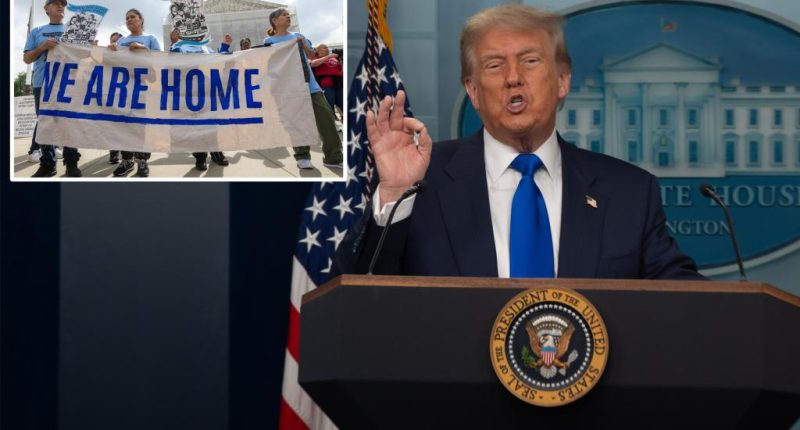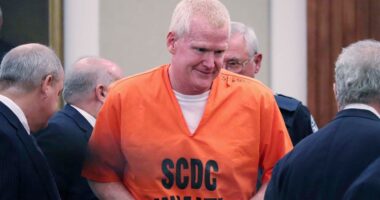Share this @internewscast.com
Birthright citizenship continues to stand in the US—at least for the time being—after the Supreme Court’s decision on Friday, which curbed judges’ authority to issue universal injunctions that block executive actions.
Following the 6-3 decision, the Trump administration promptly declared its intention to advance with the president’s Day One executive order. This order seeks to reinterpret the 14th Amendment’s assurance that “[a]ll persons born or naturalized in the United States, and subject to the jurisdiction thereof, are citizens of the United States and of the State wherein they reside.”
“Due to this verdict, we can now quickly move forward on a number of policies that have been unjustly halted on a nationwide level, and some of these involve ending birthright citizenship, which now becomes a priority,” President Trump stated during an unusual appearance in the White House briefing room.

“That was meant for the babies of slaves. It wasn’t meant for people trying to scam the system and come into the country on a vacation.”
“Yes, birthright citizenship will be decided in October in the next session by the Supreme Court,” Attorney General Pam Bondi affirmed moments later, even though the high court has yet to finalize its argument schedule and no cases related to the executive order have been picked for review by the justices.
In an opinion authored by Justice Amy Coney Barrett, the court ruled that the practice of a single district judge issuing a nationwide ruling “likely exceed” the authority laid out by the Judiciary Act of 1789.
Notably, the court did not decide whether Trump’s actual order was constitutional.
“If there’s a birthright citizenship case in Oregon, it will only affect the plaintiff in Oregon, not the entire country,” was how Bondi explained the ruling.
Trump’s order would limit US citizenship to children who have at least one parent who is a US citizen or lawful permanent resident.
The action was enjoined three days after Trump signed it by a Seattle federal judge, who called the move “blatantly unconstitutional.”

On Friday afternoon, the American Civil Liberties Union filed a fresh class-action lawsuit challenging the birthright citizenship order, a legal maneuver which must meet certain requirements before getting a hearing.
“This new case seeks protection for all families in the country, filling the gaps that may be left by the existing litigation,” the organization said in a press release.
The 22 Democrat-led states that challenged Trump’s order also expressed confidence that it would never be enforced.
“We have every expectation we absolutely will be successful in keeping the 14th Amendment as the law of the land,” said Massachusetts Attorney General Andrea Campbell, “and of course birthright citizenship as well.”
Locally, a City Hall spokesperson confirmed to The Post that Friday’s Supreme Court ruling has no effect on New York City at this time.
With Post wires
















